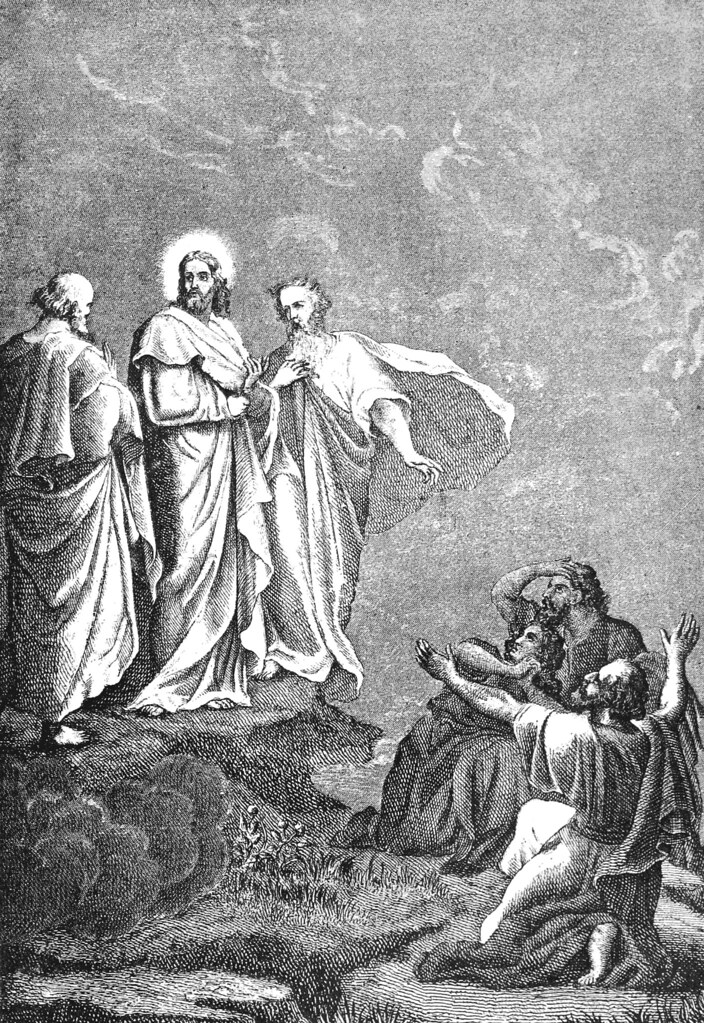An overview of Isaiah 49 and its significance in Christian theology, exploring the servants mission, restoration, and the inclusion of Gentiles in the salvation offered by Jesus.
Photo by Bhushan Sadani on Unsplash | Commercial use allowed
Isaiah 49: Overview and Significance in Christian Theology
Isaiah 49 holds a profound significance in Christian theology as it prophesies about the servant’s powerful mission, restoration, and the inclusion of Gentiles in salvation. This chapter is divided into three main sections, each addressing the servant’s mission, restoration, and the Gentiles’ inclusion in the salvation offered by Jesus. The importance of Isaiah 49 lies in its portrayal of Jesus as the chosen servant of God, the fulfillment of the Messianic prophecy, and the universal scope of salvation encompassing both Jews and Gentiles.
Isaiah 49 serves as a foundational prophecy that finds its ultimate fulfillment in the life, death, and resurrection of Jesus, embodying the essence of God’s love and mercy for all humanity. The chapter’s significance in Christian theology resonates in the profound insight it provides into the mission of the servant, which is fulfilled by Jesus Christ. This chapter depicts the servant’s mission as one of redemption and restoration, not limited to a specific group or nation, but extending to all people. The inclusion of the Gentiles in the salvation offered by Jesus is a pivotal aspect of this prophecy, emphasizing the universal love and grace of God towards humanity. It is crucial to understand the immense impact of Isaiah 49 in shaping Christian beliefs and practices, as it underscores the universal nature of salvation and the redemptive work of Jesus Christ.
For example, many Christian theologians and scholars have extensively analyzed the nuances of Isaiah 49, delving into the multifaceted layers of its meaning and implications for Christian theology. The prophecy’s profound significance has been a subject of scholarly discourse, shedding light on the universal scope of God’s redemptive plan and the inclusive nature of Jesus’ mission. The in-depth examination of Isaiah 49 has not only deepened the understanding of the servant’s role but has also inspired believers to emulate the servant’s mission by sharing the light of Christ with others, in alignment with the servant’s role as a light for the Gentiles and the embodiment of God’s salvation for all nations.
 Understanding the Servant’s Mission in Isaiah 49
Understanding the Servant’s Mission in Isaiah 49
Isaiah 49 presents a profound vision of the freedom of God’s captive people, with both immediate and remote fulfillment. This vision sets the stage for the powerful mission of Jesus, who is portrayed as the chosen servant of God. The depiction of the servant emphasizes not only his remarkable mission but also his meekness, compassion, and determination. This multifaceted portrayal aligns with the New Testament’s description of Jesus as the embodiment of divine power and unwavering love, perfectly fulfilling the prophecy of the servant’s mission.
The servant’s mission in Isaiah 49 captures the grandeur and significance of Jesus’ redemptive work, providing a rich tapestry of imagery that underscores the depth and scope of his transformative mission on earth. The servant’s mission not only captures the grandeur and significance of Jesus’ redemptive work but also provides a rich tapestry of imagery that underscores the depth and scope of his transformative mission on earth. It is essential to recognize the profound impact of Isaiah 49 in shaping the theological understanding of Jesus’ mission, as it portrays the servant’s role as a unifying force in the restoration and redemption of humanity.
Furthermore, the imagery of the servant’s weapons as a sharp sword and hidden arrow symbolizes the profound power and mystery of the gospel. This metaphor underscores the transformative impact of the message of salvation, which has the ability to pierce through the barriers of human understanding and bring about profound spiritual change. It also highlights the dual nature of Jesus’ mission, as a force of divine power and a source of hope and redemption for all who believe.
For instance, Isaiah 49 provides a comprehensive framework for understanding the servant’s mission, encompassing its multifaceted aspects and the transformative impact it has on humanity. This profound vision of the servant’s mission not only offers a glimpse into the divine purpose of Jesus but also serves as a guiding light for believers, inspiring them to embrace the transformative power of the gospel and share it with the world.
Themes of Restoration and Redemption in Isaiah 49
Isaiah 49 delves into the profound themes of restoration and redemption, emphasizing the servant’s pivotal role in bringing salvation to the Gentiles and being a light to all. The prophecy underscores the inclusive nature of God’s redemptive plan, demonstrating that the servant’s mission extends beyond a specific group or nation, encompassing all people. This universal scope of salvation through Jesus reflects the profound and far-reaching impact of the servant’s mission, fulfilling the Messianic blessing for the entire world as promised to Abraham.
Furthermore, the servant’s mission in Isaiah 49 embodies the promise of restoration and redemption for all who believe. The depiction of the servant as a light for the Gentiles resonates with the broader message of hope and salvation for individuals from every corner of the earth. This serves as a powerful testament to God’s unwavering love and grace, as the servant’s mission transcends geographical and cultural boundaries, offering the promise of spiritual renewal and reconciliation to all who embrace the message of salvation.
The profound themes of restoration and redemption in Isaiah 49 underscore the enduring significance of the servant’s mission in Christian theology. The inclusion of Gentiles in the salvation offered by Jesus not only aligns with the overarching theme of restoration and redemption but also serves as a testament to the profound impact of the servant’s mission, embracing people from all walks of life and ethnic backgrounds. This universal aspect of the servant’s mission resonates with the core Christian belief in the all-encompassing nature of God’s redemptive plan, emphasizing the servant’s role as a unifying force in the restoration and redemption of humanity.
The Inclusion of Gentiles in Salvation
Isaiah 49 not only emphasizes the restoration and redemption of God’s people but also illuminates the profound inclusion of the Gentiles in the salvation offered by Jesus. The text vividly portrays the servant as a light for the Gentiles and the one who brings salvation to the ends of the earth, underscoring the universal scope of the servant’s mission. This inclusive approach aligns perfectly with the Messianic promise that the blessing for the entire world would come from the offspring of Abraham. This pivotal aspect of the prophecy signifies the expansive nature of God’s redemptive plan, encompassing people from all nations and ethnicities, as Jesus, the Messiah, becomes the ultimate fulfillment of this promise, unifying Jews and Gentiles in the salvation offered by God.
Furthermore, the inclusion of Gentiles in the salvation offered by Jesus resonates deeply with the core theological principle of God’s grace reaching beyond the confines of one nation or people group. This theological underpinning is a cornerstone of Christian belief, highlighting the overarching theme of God’s universal love and salvific intent for all humanity. The servant’s role as a light for the Gentiles and the bearer of salvation to the ends of the earth underscores the expansive and all-encompassing nature of God’s redemptive work, emphasizing the profound unity and reconciliation brought about by Jesus, the ultimate Servant of God, in fulfilling the Messianic promise of inclusion for all.
The inclusion of Gentiles in the salvation offered by Jesus serves as a powerful testament to the universal scope of God’s redemptive plan and the transformative impact of the servant’s mission. This inclusive approach not only underscores the universal love and grace of God but also highlights the unifying role of Jesus in extending salvation to all peoples, transcending cultural and geographical boundaries. The fulfillment of the Messianic promise of inclusion for all, as depicted in Isaiah 49, resonates deeply with the core Christian belief in the all-encompassing nature of God’s redemptive plan, emphasizing the servant’s role as a unifying force in the restoration and redemption of humanity.
#Isaiah49 #ServantsMission #Restoration #GentilesInclusion #JesusTeachings #UniversalRedemption #SalvationforAll #GodsFaithfulness #SpiritualRenewal #WholenessinChrist #InclusiveSalvation #Reconciliation #LighttotheNations #HopeforAll #FulfillmentinJesus
Messianic Mission and Redemption
Isaiah 49 holds significant Messianic implications, particularly in bringing peace into the entire world. The chapter highlights the servant of the Lord’s crucial role in fulfilling the mission of redemption for the entire world. This mission aligns with the Messianic expectations of the Jewish community and the broader scope of God’s redemptive plan. The servant, identified as Jesus, embodies the promise of God’s universal blessing and salvation, emphasizing the profound impact of His mission on humanity.
Furthermore, the Messianic significance of the servant’s mission is seen in the servant’s portrayal as a light for the Gentiles and the one who brings salvation to the ends of the earth. This aligns with the broader understanding of the Messiah’s role in not only redeeming the Jewish people but also extending God’s salvation to all nations. The servant’s mission as depicted in Isaiah 49 emphasizes the inclusive nature of God’s redemptive plan, demonstrating His desire for all peoples to partake in the blessings of salvation through the work of the Messiah, Jesus.
Moreover, the Messianic mission for redemption is intricately linked to the servant’s portrayal in Isaiah 49, emphasizing the profound impact of Jesus’ ministry on the restoration and redemption of humanity. This aligns with the Messianic promise of bringing peace into the entire world, a central theme in Isaiah 49. The servant’s powerful mission reflects the universal scope of God’s redemptive plan, extending beyond a specific group or nation to encompass all of humanity, thus fulfilling the broader Messianic expectations and prophecies.
The Messianic significance of Isaiah 49 deeply resonates with the core theological understanding of Jesus as the fulfillment of Old Testament prophecies and the embodiment of God’s redemptive plan for humanity. The chapter’s portrayal of the servant’s mission not only underscores the universal scope of salvation but also highlights the transformative impact of Jesus’ ministry on the restoration and redemption of all peoples. This enduring Messianic significance of Isaiah 49 continues to shape Christian beliefs and practices, serving as a profound testament to the universal love and grace of God and the inclusive nature of Jesus’ redemptive work.
 Jesus’ Ministry Strategy and Concern for All Nations
Jesus’ Ministry Strategy and Concern for All Nations
Jesus’ ministry strategy extended beyond the Jewish community to encompass reaching out to both Jews and Gentiles, demonstrating God’s heart for all nations. This inclusive approach was in line with the Old Testament prophecies, which foretold the universal nature of the Messiah’s redemptive mission. For instance, the books of Ezekiel and Daniel influenced Jesus’ title “Son of Man,” emphasizing His perfect humanity and identity as the Messiah, and pointing to His mission extending to all people.
Moreover, Jesus’ movement toward the cross during His last week in Jerusalem further reflected His concern for all nations. His actions and teachings underscored the universal impact of His redemptive work, transcending cultural and geographical boundaries. This pivotal moment in Jesus’ ministry demonstrated the all-encompassing nature of His mission and His deep care for the salvation of people from every nation, tribe, and tongue.
Furthermore, after His resurrection, Jesus specifically instructed His followers to be His witnesses to the end of the earth. This command not only highlighted the global scope of the gospel but also emphasized God’s heart for all nations. By commissioning His disciples to spread the message of salvation to the farthest reaches of the world, Jesus reaffirmed the inclusive nature of His redemptive work and the universal scope of His ministry.
The comprehensive ministry strategy of Jesus and His deep concern for all nations serve as a profound testament to the universal scope of God’s redemptive plan and the transformative impact of Jesus’ mission. This inclusive approach not only underscores the universal love and grace of God but also highlights the unifying role of Jesus in extending salvation to all peoples, transcending cultural and geographical boundaries. The fulfillment of the Messianic promise of inclusion for all, as depicted in Isaiah 49, resonates deeply with the core Christian belief in the all-encompassing nature of God’s redemptive plan, emphasizing the servant’s role as a unifying force in the restoration and redemption of humanity.
The Identity of the Servant in Isaiah 49
Isaiah 49 is a significant passage in Christian theology as it unequivocally identifies the servant as Jesus, the chosen Servant of God. This identification is crucial in understanding the prophecy about the powerful mission, restoration, and the inclusion of Gentiles in salvation offered by Jesus. The passage in Isaiah 49 aligns with the portrayal of Jesus as the fulfillment of the Messianic prophecy, emphasizing the continuity between Old Testament prophecies and the fulfillment of the servant’s mission in Jesus. This identification is reinforced by the New Testament apostles and prophets who affirmed the servant in Isaiah 49 to be Jesus, further solidifying the significance of this passage in Christian theology.
The language in the immediate context of Isaiah 49 supports the individual nature of the servant, as it describes the servant as being formed in his mother’s womb and called by the Lord from birth. This aligns with the portrayal of Jesus, who was born of the Virgin Mary, fulfilling the anticipation of the unborn Messiah in Old Testament passages. This identification of the servant as an individual with a mother further strengthens the connection to Jesus, as it corresponds to the biblical narrative of Jesus’ birth and life, highlighting the Messianic significance of Isaiah 49 in Christian theology. The profound identification of the servant as Jesus not only underscores the continuity between Old Testament prophecies and the fulfillment of the servant’s mission in Jesus but also serves as a testament to the divine orchestration of God’s redemptive plan throughout history.
The Birth of Jesus and Prophecies
Isaiah 49 not only anticipates the unborn Messiah in his mother’s womb but also aligns with the broader anticipation of the Messiah in Old Testament passages. The prophecy in Isaiah 49 about God’s servant (Jesus) being a human being, born of a woman, echoes the consistent theme of the Messiah’s birth foretold in the Old Testament. This alignment is significant as it underscores the meticulous fulfillment of Old Testament predictions in the birth and ministry of Jesus, thereby affirming His identity as the promised Messiah.
For example, the prophecy in Isaiah 49:1, “The Lord called me from the womb; from the body of my mother he named me,” directly points to the unborn Messiah’s divine calling and purpose even before birth. This closely resonates with other Old Testament passages such as Micah 5:2, which predicts the birth of the Messiah in Bethlehem, and Isaiah 7:14, which anticipates the virgin birth of Immanuel. These collective prophecies not only emphasize the miraculous nature of the Messiah’s birth but also validate Jesus’ fulfillment of these specific and detailed predictions. The consistent portrayal of the Messiah’s birth in the Old Testament serves as a testament to the divine orchestration and fulfillment of God’s redemptive plan through Jesus, highlighting the continuity of God’s promise throughout history and the significance of Jesus as the culmination of these profound prophecies.
Furthermore, the fulfillment of Old Testament prophecies in the birth and ministry of Jesus not only underscores the divine orchestration of God’s redemptive plan but also highlights the meticulous fulfillment of His promises throughout history. This alignment serves as a profound testament to the divine continuity of God’s plan and the profound significance of Jesus as the fulfillment of the Messianic prophecies. The enduring fulfillment of Old Testament predictions in the birth and ministry of Jesus not only underscores the meticulous fulfillment of God’s promises but also serves as a profound testimony to His faithfulness and sovereignty throughout history.
 Comparison with Other Servant Songs
Comparison with Other Servant Songs
Isaiah 49 stands out as a unique portrayal of the servant’s mission and attributes when compared to the other “Servant Songs” in the book of Isaiah. While the other servant songs focus on different aspects of the servant’s role, Isaiah 49 emphasizes the powerful nature of the servant’s mission and his significant role in God’s redemptive plan. For example, in Isaiah 42, the servant is described with meekness, compassion, and determination, highlighting his gentle and compassionate nature. However, in Isaiah 49, the servant’s weapons are depicted as a sharp sword and hidden arrow, symbolizing the power and mystery of the gospel. This contrast illustrates the diverse aspects of the servant’s character and mission, showcasing the depth of his purpose in bringing salvation.
Furthermore, the servant’s mission expands in Isaiah 49 to include bringing salvation to the Gentiles and being a light to all. This universal outlook is distinct from the other servant songs, as it highlights the inclusive nature of the servant’s redemptive work. Unlike the previous servant songs, Isaiah 49 emphasizes the global impact of the servant’s mission, solidifying the servant’s role in extending God’s salvation to all peoples, not just the nation of Israel. This unique emphasis on the universal scope of the servant’s mission sets Isaiah 49 apart and underscores the significance of the servant’s inclusion of Gentiles in the salvation offered by Jesus.
The comparison with other servant songs in the book of Isaiah not only underscores the unique portrayal of the servant’s mission in Isaiah 49 but also highlights the multifaceted aspects of the servant’s character and purpose. This comparative analysis serves as a testament to the depth and richness of the servant’s role in God’s redemptive plan, emphasizing the diverse nature of his mission and the universal scope of his redemptive work. The unique emphasis on the inclusive nature of the servant’s mission in Isaiah 49 not only underscores the universal love and grace of God but also highlights the unifying role of Jesus in extending salvation to all peoples, transcending cultural and geographical boundaries.
 The Servant’s Mission in Christian Theology
The Servant’s Mission in Christian Theology
The significance of Isaiah 49 in Christian theology lies in its portrayal of the servant’s powerful mission, restoration, and the inclusion of Gentiles in salvation. This prophecy has profound implications for Christian beliefs and practices. The servant’s mission, as described in Isaiah 49, points to Jesus Christ as the chosen servant of God with a powerful mission, encompassing meekness, compassion, and determination. The servant’s weapons, symbolized as a sharp sword and hidden arrow, represent the power and mystery of the gospel, underscoring the divine nature of the servant’s mission and the transformative impact of salvation offered through Jesus.
Furthermore, the servant’s role in bringing salvation to the Gentiles and being a light to all showcases the universal scope of God’s redemptive plan, emphasizing the inclusive nature of salvation. This aligns with the New Testament’s portrayal of Jesus as the Messiah for both Jews and Gentiles, fulfilling the promise to Abraham in Genesis 12:1-3 and demonstrating God’s heart for all nations. The Messianic blessing for the entire world, as depicted in Isaiah 49, encompasses the overarching mission of the servant of the Lord, which finds its fulfillment in Jesus Christ, thereby shaping the theological understanding of the Messiah’s redemptive purpose for humanity.
In essence, the servant’s mission in Christian theology serves as a foundational concept that underscores the universal nature of salvation and the redemptive work of Jesus Christ. This enduring theological theme has not only influenced Christian beliefs but has also inspired believers to emulate the servant’s mission by sharing the light of Christ with others, in alignment with the servant’s role as a light for the Gentiles and the embodiment of God’s salvation for all nations. The enduring significance of the servant’s mission in Christian theology underscores the universal love and grace of God and the unifying role of Jesus in extending salvation to all peoples, transcending cultural and geographical boundaries.

 Understanding the Servant’s Mission in Isaiah 49
Understanding the Servant’s Mission in Isaiah 49 Jesus’ Ministry Strategy and Concern for All Nations
Jesus’ Ministry Strategy and Concern for All Nations Comparison with Other Servant Songs
Comparison with Other Servant Songs The Servant’s Mission in Christian Theology
The Servant’s Mission in Christian Theology

